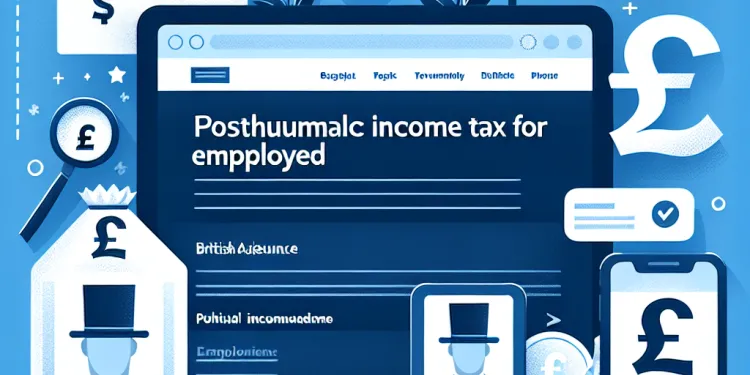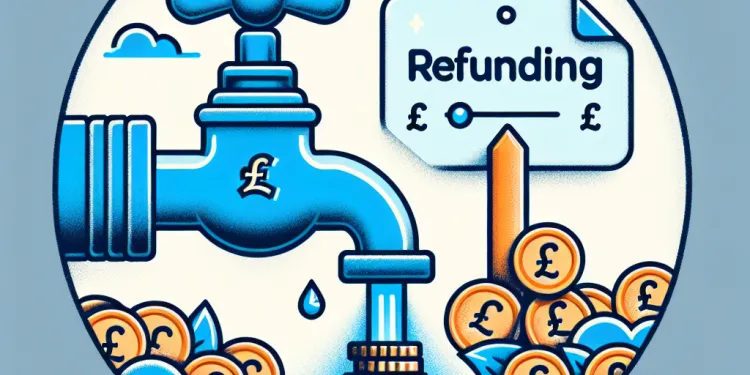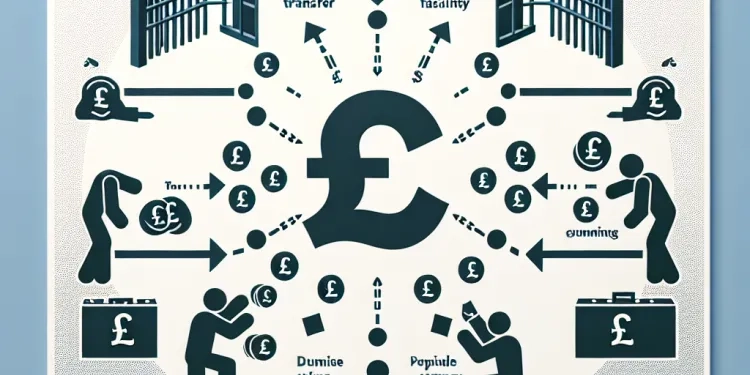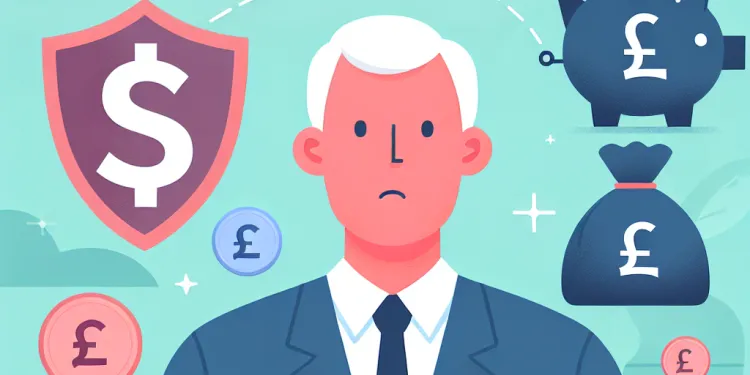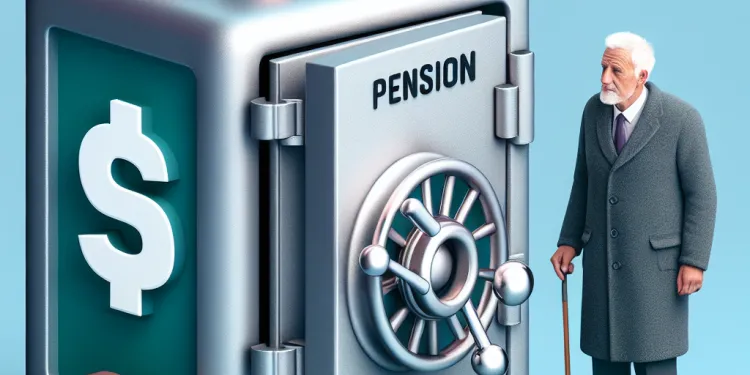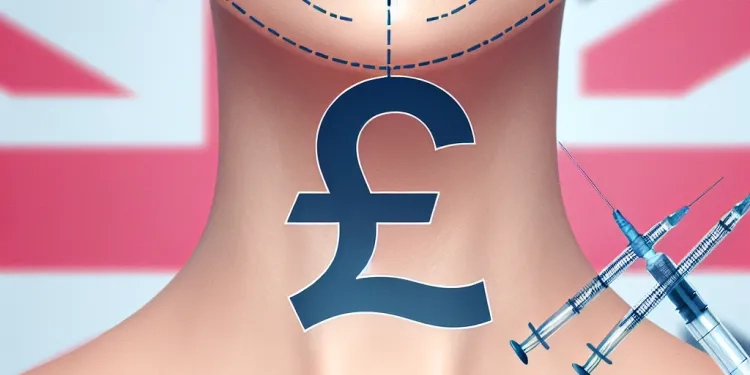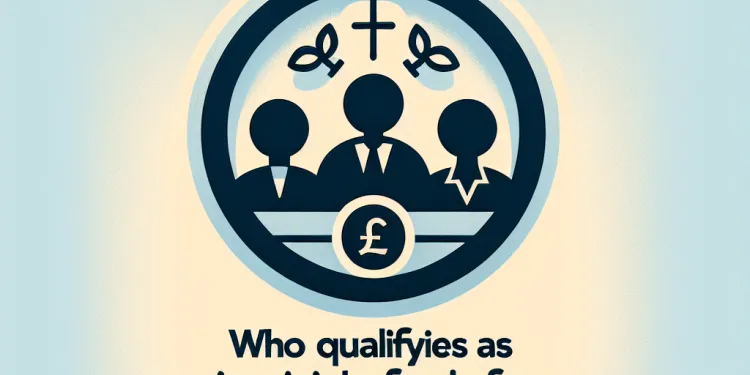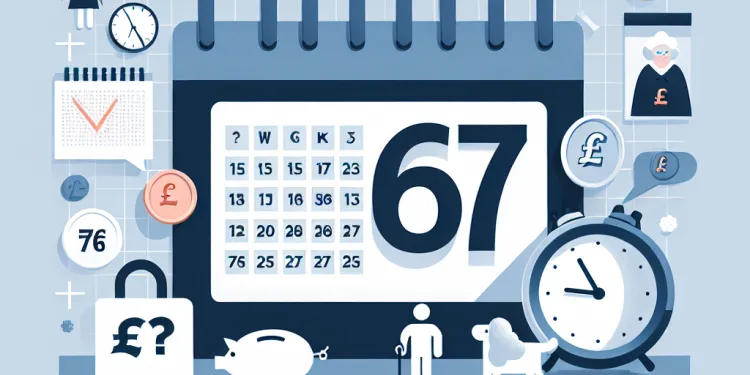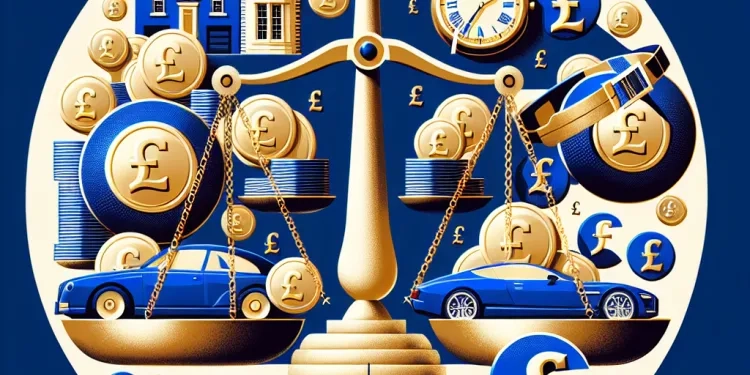
Find A Professional
More Items From Ergsy search
-

Would a wealth tax replace other taxes in the UK?
Relevance: 100%
-

What is the wealth tax in the UK?
Relevance: 92%
-

Could a wealth tax encourage tax avoidance?
Relevance: 92%
-

What is the Wealth Tax in the UK?
Relevance: 87%
-

How do other countries implement a wealth tax?
Relevance: 80%
-

How might a wealth tax impact inequality in the UK?
Relevance: 79%
-

Has the UK ever had a wealth tax?
Relevance: 79%
-

Could a wealth tax affect economic growth in the UK?
Relevance: 79%
-

Has any political party in the UK supported a wealth tax?
Relevance: 79%
-

Why doesn't the UK have a wealth tax?
Relevance: 78%
-

Would a wealth tax apply to foreign assets?
Relevance: 72%
-

What arguments are made for a wealth tax in the UK?
Relevance: 70%
-
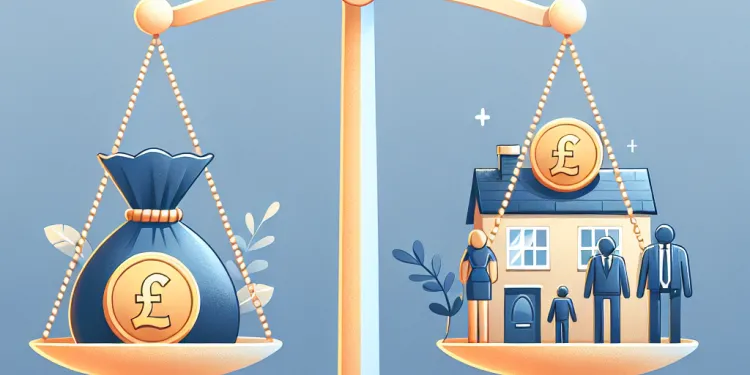
Do unpaid tax debts affect Inheritance Tax calculations?
Relevance: 66%
-

What are the administrative costs of a wealth tax?
Relevance: 65%
-

What are the challenges of implementing a wealth tax?
Relevance: 65%
-

How does council tax relate to wealth in the UK?
Relevance: 61%
-

Higher Income Tax - How to Claim Pension Tax Relief | Extra 20% Boost
Relevance: 59%
-

What Happens to Tax Debt After Death? (UK Laws)
Relevance: 55%
-

What is the role of an executor in handling tax debts?
Relevance: 54%
-

Are these grants taxable?
Relevance: 53%
-

Can the executor use the deceased's assets to pay tax debts?
Relevance: 50%
-

What happens to a deceased’s Income Tax if they were employed?
Relevance: 48%
-

What taxes need to be paid from the deceased’s estate?
Relevance: 46%
-

Who is responsible for paying the deceased’s tax debts?
Relevance: 46%
-

What should I do if I need help managing the tax affairs of the deceased?
Relevance: 44%
-

Is it necessary to complete a final tax return for the deceased?
Relevance: 44%
-

Do I need to report the Winter Fuel Payment on my tax return?
Relevance: 38%
-

What taxes in the UK target wealth?
Relevance: 35%
-

What is inheritance tax in the UK?
Relevance: 35%
-

Do I need to pay tax on the £500 cost of living payment?
Relevance: 34%
-

Is the Winter Fuel Payment taxable?
Relevance: 34%
-
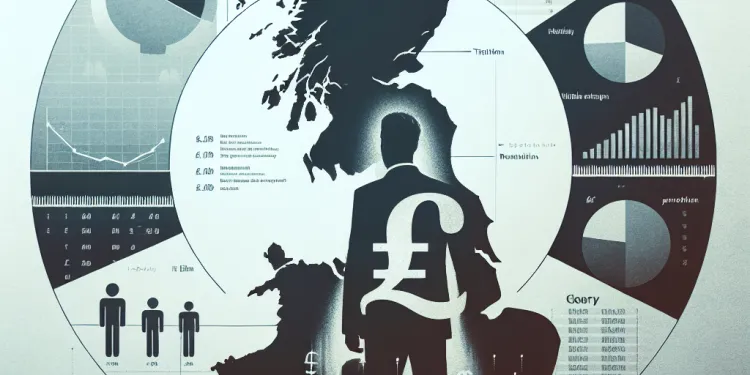
Do public opinion polls support a wealth tax in the UK?
Relevance: 29%
-

What Happens To Investments and Pensions | Moving Abroad | Leaving the UK
Relevance: 25%
-

What if the estate does not have enough assets to pay all tax debts?
Relevance: 25%
-

How do I notify HMRC of someone’s death?
Relevance: 25%
-

How is Inheritance Tax (IHT) dealt with after death?
Relevance: 22%
-

Do I need to inform HMRC about the death?
Relevance: 20%
-

What Is An ISA UK (Should I have an ISA & Different Types Of ISAs)
Relevance: 20%
-

Boost your Take Home Pay | Salary Sacrifice Explained UK
Relevance: 19%
-
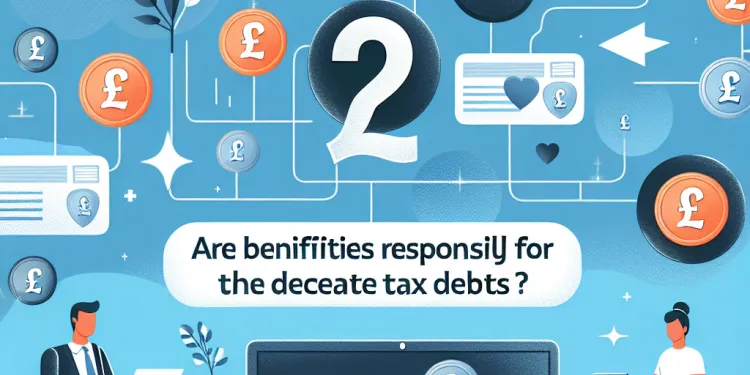
Are beneficiaries responsible for the deceased's tax debts?
Relevance: 18%
Introduction to Wealth Tax
In the United Kingdom, a wealth tax is conceptually a tax levied on the assets of individuals. Unlike income tax, which is applied on earnings, a wealth tax would be payable on the value of personal assets, such as property, investments, and other forms of capital. Although there has been significant discourse surrounding this form of taxation, the UK does not currently implement a direct wealth tax. Instead, wealth is primarily taxed through related means, such as inheritance tax and capital gains tax.
Current Taxation on Wealth
While the UK does not impose a specific wealth tax, it uses various tax mechanisms to capture value from personal wealth. The most significant among these are inheritance tax and capital gains tax. Inheritance tax is charged on the estate of a deceased person above a certain threshold, with the standard rate set at 40%. However, several exemptions and reliefs can reduce this burden.
Capital gains tax applies to the profit made from selling or disposing of an asset that has increased in value, including personal possessions worth over £6,000, property that isn't a primary home, and business assets. The rate varies based on income levels and specific situations, with possible reliefs lowering effective tax rates.
Debate Surrounding Wealth Tax
The concept of a wealth tax has been a topic of debate in the UK, particularly in discussions about economic inequality and public revenue. Proponents argue that a wealth tax could address disparities by ensuring that the wealthiest contribute a fair share to society, potentially providing funds for public services and infrastructure. Critics, however, contend that a wealth tax could encourage capital flight, discourage investment, and prove administratively costly to implement.
International Comparisons
Some countries, such as Norway and Switzerland, have implemented forms of wealth taxation with varying degrees of success. These systems typically involve annual taxes on personal net worth above certain thresholds. Their experiences provide insight into how a wealth tax could be structured in the UK, taking into account the challenges and effective methodologies observed elsewhere.
The Future of Wealth Tax in the UK
While the UK does not currently employ a formal wealth tax, the ongoing public and political debates suggest it remains a possibility in the future. Any movement towards introducing such a tax would require careful consideration of its economic impacts, administrative feasibility, and potential to balance fiscal objectives with wealth distribution goals. As ongoing discussions evolve, the government might explore reforms in existing taxes or the introduction of new measures to address wealth inequality and generate public revenue.
What is Wealth Tax?
In the UK, a wealth tax means paying money to the government based on what you own, like houses, savings, or shares. It's different from income tax, which is paid from what you earn. Right now, the UK doesn't have a special wealth tax. Instead, there are other ways to tax wealth, like inheritance tax and capital gains tax.
How the UK Taxes Wealth Today
The UK does not have a specific wealth tax. Instead, it uses other taxes to get money from wealth. Inheritance tax is one of them. This is paid when someone dies and leaves items worth more than a set amount. The usual rate is 40%. There are ways to pay less, using special rules.
Capital gains tax is another tax. This is paid when you sell something valuable, like an expensive item worth more than £6,000, a second house, or business stuff, for more than you paid for it. The tax rate is different for different people, but there are ways to lower it.
Talking About Wealth Tax
People in the UK talk a lot about wealth tax, especially about fairness and money for the country. Some people think a wealth tax would help make things fairer, with the richest paying more for services everyone uses. Others worry it could make rich people move their money away or stop investing in things, and that it might be expensive to manage.
What Other Countries Do
Countries like Norway and Switzerland have tried wealth taxes. They make people pay a yearly tax if they own a lot of things. These countries give the UK ideas on how to do a wealth tax by looking at what works well and what doesn't.
Could the UK Have a Wealth Tax?
The UK doesn't have a wealth tax right now, but people are still talking about it. In the future, the UK might think about how well a wealth tax could work, how easy it would be to start, and how it might help share wealth better. The government might change the taxes we have now or think about new ones to help manage wealth and get money for public needs.
Frequently Asked Questions
What is the wealth tax in the UK?
The UK does not currently have a specific wealth tax. However, wealth is taxed indirectly through various other taxes such as inheritance tax, capital gains tax, and income tax on investment income.
Is there a wealth tax proposal in the UK?
Various proposals have been made for introducing a wealth tax in the UK, especially in discussions about funding public services and reducing inequality, but as of now, no specific wealth tax is implemented.
How does the UK tax wealth currently?
The UK taxes wealth through inheritance tax, capital gains tax, stamp duty, and council tax, among others, instead of a direct wealth tax.
What is inheritance tax in the UK?
Inheritance tax is a tax on the estate of someone who has died. In the UK, the tax is 40% on estates over a certain threshold, which is typically £325,000 per individual.
Are there any exemptions to the UK inheritance tax?
Yes, there are exemptions such as gifts made more than seven years before death and transfers between spouses or civil partners.
What is capital gains tax in the UK?
Capital gains tax is charged on the profit when you sell or dispose of an asset that has increased in value. In the UK, there are different rates depending on your income and the type of assets sold.
Does the UK have a tax on high-value properties?
Yes, the UK charges stamp duty on property transactions, and for high-value properties, the rates can be significant.
Are there proposals to introduce a wealth tax in the future?
There have been discussions and proposals by various think tanks and political figures to introduce a wealth tax, but nothing has been legislated yet.
What are the arguments in favor of a wealth tax?
Proponents argue that a wealth tax could reduce inequality, raise revenue for public services, and ensure that the wealthy contribute more fairly to the economy.
What are the arguments against a wealth tax?
Critics say a wealth tax could be difficult to administer, lead to capital flight, discourage saving and investment, and ultimately harm economic growth.
How do other countries implement wealth taxes?
Some countries like Switzerland and Norway have wealth taxes where a tax is levied on an individual's net wealth above a certain threshold annually.
Is council tax considered part of taxing wealth in the UK?
Council tax is a local tax on domestic property used to pay for local services, indirectly related to wealth as it is based on property values.
What is the net worth threshold for considering a wealth tax proposal in the UK?
Various proposals have suggested different thresholds, but a common figure is around £500,000 to £1 million per individual.
What alternative taxes impact wealth in the UK?
Apart from inheritance tax and capital gains tax, income from investments may also be taxed under income tax rules.
Has the UK had a wealth tax in the past?
The UK has never had a dedicated recurring wealth tax like some other countries, though there have been various wealth-related taxes like the capital transfer tax in the past.
What are some recent discussions about wealth tax in the UK?
Amidst economic strains, there are increasing discussions about tax reform, including the possibility of implementing a wealth tax to address inequality and fiscal gaps.
How might a wealth tax affect the UK economy?
A wealth tax could provide additional revenue for government spending but may also affect economic behavior, investment, and wealth accumulation.
What is the likelihood of a wealth tax being introduced in the UK?
As of now, the introduction of a wealth tax in the UK remains uncertain and largely dependent on political will and economic conditions.
What studies have been conducted on wealth tax feasibility in the UK?
Numerous think tanks and academic institutions have conducted studies exploring the feasibility, potential revenue, and economic effects of a wealth tax in the UK.
Who would be liable to pay a wealth tax if introduced in the UK?
If a wealth tax were introduced, it would likely target individuals with net assets above a certain threshold, but specific details would depend on the legislation.
What is the wealth tax in the UK?
The wealth tax is money that rich people pay to the government. It is a way to help everyone.
People pay wealth tax on things like big houses or lots of money.
There is no wealth tax in the UK right now.
Using tools like a dictionary or asking someone for help can be useful.
The UK does not have a special tax just for wealth right now. But, people still pay taxes on their wealth in other ways. These are:
1. Inheritance Tax: This is a tax you pay when someone passes away and leaves you money or property.
2. Capital Gains Tax: This is a tax you pay when you sell something valuable, like a house or shares, for more money than you paid for it.
3. Income Tax on Investment Income: This is a tax on money you earn from investments, like interest from savings or dividends from shares.
To help understand taxes better, you can use simple online calculators or ask someone you trust for help.
Is the UK planning a new tax for rich people?
People have talked about starting a new tax in the UK called a "wealth tax." This means rich people might pay more money to the government.
The idea is to use this money to help pay for schools, hospitals, and other important things everyone needs. It's also to help make things fairer between rich and poor people.
But right now, there is no wealth tax in the UK.
How does the UK collect money from wealth now?
The UK collects money from wealth in different ways:
- Inheritance Tax: This is the money you pay when you get a gift after someone dies.
- Capital Gains Tax: This is what you pay when you sell something for more money than you bought it for.
- Stamp Duty: This is the money you pay when you buy a house.
- Council Tax: This is the money you pay to your local area for services like rubbish collection.
These are some of the ways the UK taxes wealth. The UK does not have one big ‘wealth tax’.
Helpful Tools:
Try using pictures to understand these taxes better. You can talk to someone you trust for help too.
What is inheritance tax in the UK?
Inheritance tax is a kind of money you pay to the government. You pay it when someone dies and you get their money or things.
In the UK, if the person who died has over a certain amount of money, you might have to pay this tax.
You can use tools like picture cards to help understand. You can also talk to someone you trust about it.
When someone dies, there might be tax on the things they leave behind. This is called inheritance tax.
In the UK, if everything someone leaves behind is worth more than £325,000, there is a tax. The tax is 40% on anything over £325,000.
To make understanding and handling inheritance tax easier, you can ask a family member or friend to help. You can also ask someone who knows a lot about money, like a financial advisor.
Do some people not have to pay UK inheritance tax?
Yes, there are some times when you don't have to pay taxes. If you give a gift more than seven years before you die, you don't have to pay taxes. Also, if you give something to your husband, wife, or civil partner, you don't have to pay taxes either.
What is Capital Gains Tax in the UK?
Capital Gains Tax is money you pay to the government when you sell something valuable. This can be a house, stocks, or shares and you sell it for more money than you paid.
In the UK, you pay this tax when you make a profit from selling big things.
Tips to understand better:
- Use pictures to help explain what Capital Gains Tax is.
- Ask someone to help you with big words.
- Use a calculator to help with math.
Capital gains tax is a tax you pay when you make money by selling something for more than you bought it for. In the UK, how much you have to pay depends on how much money you earn and what type of thing you sold.
Does the UK have a tax on expensive homes?
Yes, there is a tax for expensive homes in the UK. This means people pay extra money when buying or owning a costly house.
When they buy a home, they might pay a tax called Stamp Duty. This is extra money given to the government.
If the house is very valuable and in a special area, there might be more taxes.
If you need help, you can:
- Use a calculator to see how much tax you need to pay.
- Ask a grown-up or expert to explain the taxes.
Yes, you have to pay a tax called stamp duty when you buy a house in the UK. If the house costs a lot, the tax can be quite high.
Will there be a new tax for rich people?
Some people have talked about making a new tax for rich people. But it has not become a law yet.
Why do some people think a wealth tax is a good idea?
Some people think a wealth tax is a good idea. They say it could make things more equal, bring in money for things like schools and hospitals, and make sure rich people pay their share.
Why do some people not like a wealth tax?
Some people think a wealth tax is hard to run, might make rich people move their money away, stop people from saving and investing, and could hurt the economy.
Here are some ways to understand this better:
- Use a dictionary to look up words you don't know.
- Ask someone you trust to explain it to you.
- Read slowly and take breaks if you need to.
How do other countries use wealth taxes?
Let's see how different countries use wealth taxes. A wealth tax is when people pay the government money based on the valuable things they own.
- Some countries ask rich people to pay more money.
- Other places might have lower taxes for houses and land.
- A few countries don't have any wealth tax at all.
If reading is hard, you can:
- Ask a friend or family member to help you.
- Use a text-to-speech app to listen to the words.
In some countries like Switzerland and Norway, there is a special tax called a "wealth tax."
This tax is paid every year on how much money or valuable things a person has.
But they only pay this tax if their money or things are worth more than a certain amount.
To help understand taxes, you can use tools like online calculators or ask an adult for help.
Is Council Tax a Type of Wealth Tax in the UK?
Council Tax is money you pay to your local council. It helps pay for things like schools and rubbish collection. It is not the same as a wealth tax.
A wealth tax is a tax on things you own, like money and houses. Council Tax is based on the value of the home you live in, but it is mainly for paying for local services.
If you want help with Council Tax, you can:
- Ask someone you trust to explain it to you.
- Use a calculator to see how much you need to pay.
- Talk to your local council for advice.
Council tax is money you pay for where you live. This money helps pay for things in your area, like parks and schools. How much you pay depends on how much your home is worth.
How much money do you need to have before paying a wealth tax in the UK?
Some people have different ideas about how much money should be saved. A common idea is to save between £500,000 and £1 million per person.
What other taxes can affect money in the UK?
When you make money from investments, you might have to pay a tax called income tax. This is different from inheritance tax and capital gains tax.
Did the UK ever have a tax on wealth before?
A wealth tax is when rich people pay money based on what they own. Did the UK ever do this?
Tip: You can use a tool to hear this text read out loud to help understand it better.
The UK does not have a special wealth tax that people pay every year. Some other countries do have this kind of tax. In the past, the UK had different taxes about wealth, like the capital transfer tax.
What are people saying about wealth tax in the UK?
People in the UK are talking about wealth tax. Wealth tax is money that rich people might pay to the government.
Some people like wealth tax because it helps pay for things like schools and hospitals. Other people do not like it because they say it might be unfair.
To understand better, you can:
- Watch videos about wealth tax.
- Ask someone to explain it using simple words.
- Use a dictionary to learn new words.
When money is tight, people talk more about changing taxes. Some people think about adding a wealth tax. This tax could help make things fairer and fill money gaps in the budget.
What would happen if rich people paid more tax in the UK?
A wealth tax is a kind of money that people pay to the government. It means people with lots of money might give some of it to help the country.
This money could be used for important things like schools or hospitals. But, it might also change how people use and save their money.
Some people might invest less or save in different ways because of this tax.
If you find it hard to read, you can use tools like text-to-speech readers that can read out the text for you. Also, breaking up the text into smaller bits can help make it easier to understand.
Will the UK have a new tax for rich people?
Right now, we are not sure if the UK will have a wealth tax. This depends on what leaders want and how the economy is doing.
What research has been done about a wealth tax in the UK?
People want to know if a wealth tax can work in the UK.
Research means looking closely at this idea.
Experts may have written reports or done studies.
These can help understand if a wealth tax is possible.
Tools to help you read more:
- Use a dictionary for hard words.
- Ask someone to explain it to you.
- Find videos or pictures about the topic.
Many groups and schools have done studies to see if a wealth tax in the UK would work. They look at how much money it could make and how it might change the economy.
Who Would Have to Pay a Wealth Tax in the UK?
If the UK starts a wealth tax, who will pay it?
A wealth tax means people with lots of money and things that are worth a lot may have to give some money to the government.
If you want to understand more, you might try:
- Talking to someone who knows about taxes.
- Using a calculator to see if it might affect you.
If a wealth tax starts, it would focus on people who own a lot of money and things. The government would decide how much money or things someone needs to have before paying this tax.
Useful Links
More Videos of Interestdiagnosis
- Ergsy carfully checks the information in the videos we provide here.
- Videos shown by Youtube after a video has completed, have NOT been reviewed by ERGSY.
- To view, click the arrow in centre of video.
- Most of the videos you find here will have subtitles and/or closed captions available.
- You may need to turn these on, and choose your preferred language.
- Go to the video you'd like to watch.
- If closed captions (CC) are available, settings will be visible on the bottom right of the video player.
- To turn on Captions, click settings .
- To turn off Captions, click settings again.
More Items From Ergsy search
-

Would a wealth tax replace other taxes in the UK?
Relevance: 100%
-

What is the wealth tax in the UK?
Relevance: 92%
-

Could a wealth tax encourage tax avoidance?
Relevance: 92%
-

What is the Wealth Tax in the UK?
Relevance: 87%
-

How do other countries implement a wealth tax?
Relevance: 80%
-

How might a wealth tax impact inequality in the UK?
Relevance: 79%
-

Has the UK ever had a wealth tax?
Relevance: 79%
-

Could a wealth tax affect economic growth in the UK?
Relevance: 79%
-

Has any political party in the UK supported a wealth tax?
Relevance: 79%
-

Why doesn't the UK have a wealth tax?
Relevance: 78%
-

Would a wealth tax apply to foreign assets?
Relevance: 72%
-

What arguments are made for a wealth tax in the UK?
Relevance: 70%
-

Do unpaid tax debts affect Inheritance Tax calculations?
Relevance: 66%
-

What are the administrative costs of a wealth tax?
Relevance: 65%
-

What are the challenges of implementing a wealth tax?
Relevance: 65%
-

How does council tax relate to wealth in the UK?
Relevance: 61%
-

Higher Income Tax - How to Claim Pension Tax Relief | Extra 20% Boost
Relevance: 59%
-

What Happens to Tax Debt After Death? (UK Laws)
Relevance: 55%
-

What is the role of an executor in handling tax debts?
Relevance: 54%
-

Are these grants taxable?
Relevance: 53%
-

Can the executor use the deceased's assets to pay tax debts?
Relevance: 50%
-

What happens to a deceased’s Income Tax if they were employed?
Relevance: 48%
-

What taxes need to be paid from the deceased’s estate?
Relevance: 46%
-

Who is responsible for paying the deceased’s tax debts?
Relevance: 46%
-

What should I do if I need help managing the tax affairs of the deceased?
Relevance: 44%
-

Is it necessary to complete a final tax return for the deceased?
Relevance: 44%
-

Do I need to report the Winter Fuel Payment on my tax return?
Relevance: 38%
-

What taxes in the UK target wealth?
Relevance: 35%
-

What is inheritance tax in the UK?
Relevance: 35%
-

Do I need to pay tax on the £500 cost of living payment?
Relevance: 34%
-

Is the Winter Fuel Payment taxable?
Relevance: 34%
-

Do public opinion polls support a wealth tax in the UK?
Relevance: 29%
-

What Happens To Investments and Pensions | Moving Abroad | Leaving the UK
Relevance: 25%
-

What if the estate does not have enough assets to pay all tax debts?
Relevance: 25%
-

How do I notify HMRC of someone’s death?
Relevance: 25%
-

How is Inheritance Tax (IHT) dealt with after death?
Relevance: 22%
-

Do I need to inform HMRC about the death?
Relevance: 20%
-

What Is An ISA UK (Should I have an ISA & Different Types Of ISAs)
Relevance: 20%
-

Boost your Take Home Pay | Salary Sacrifice Explained UK
Relevance: 19%
-

Are beneficiaries responsible for the deceased's tax debts?
Relevance: 18%













































































































































































































































































































































































































































